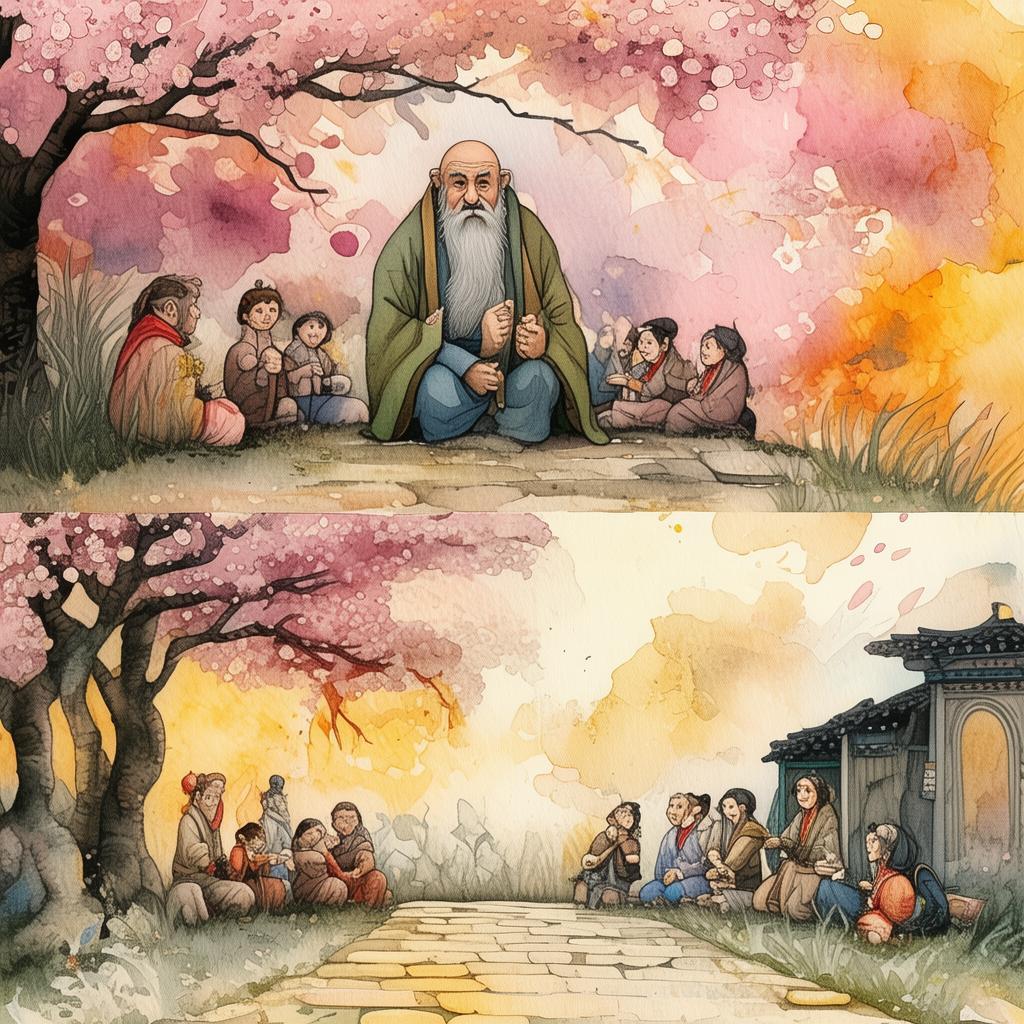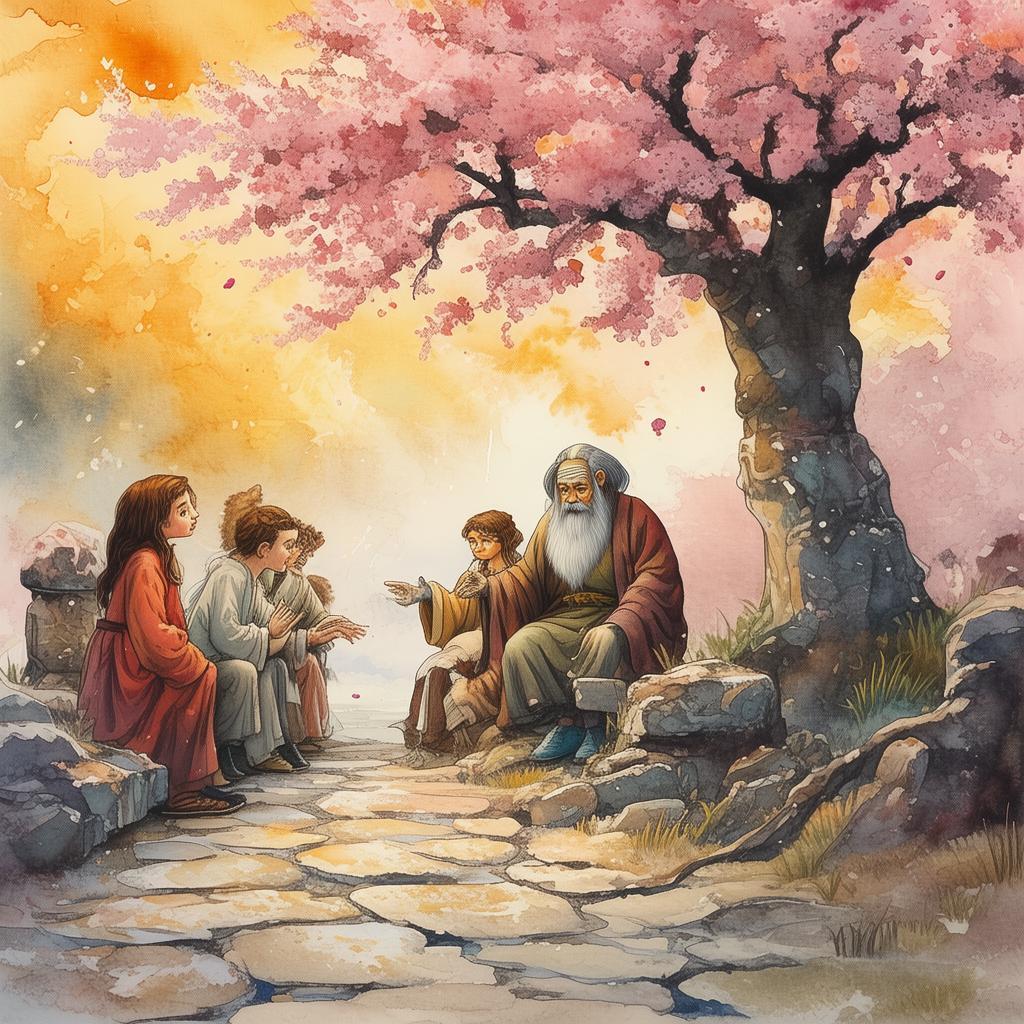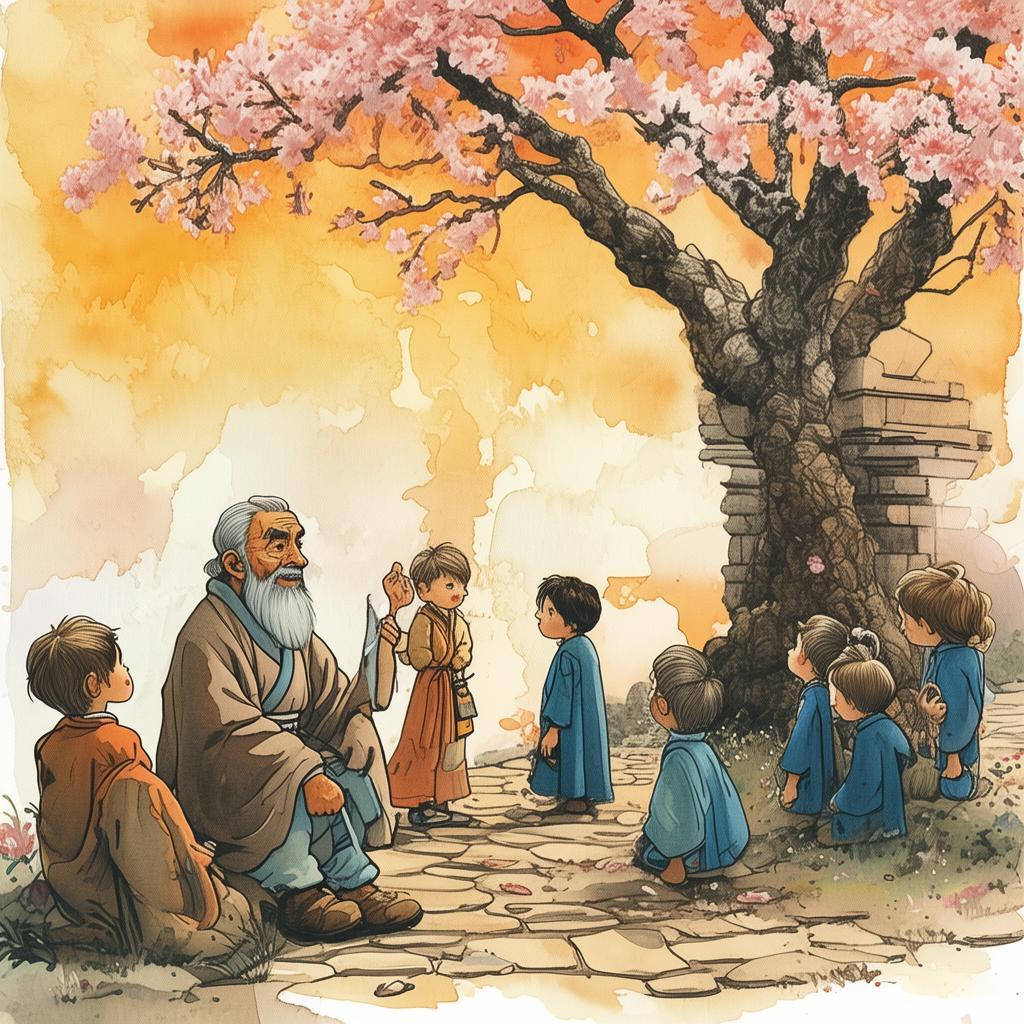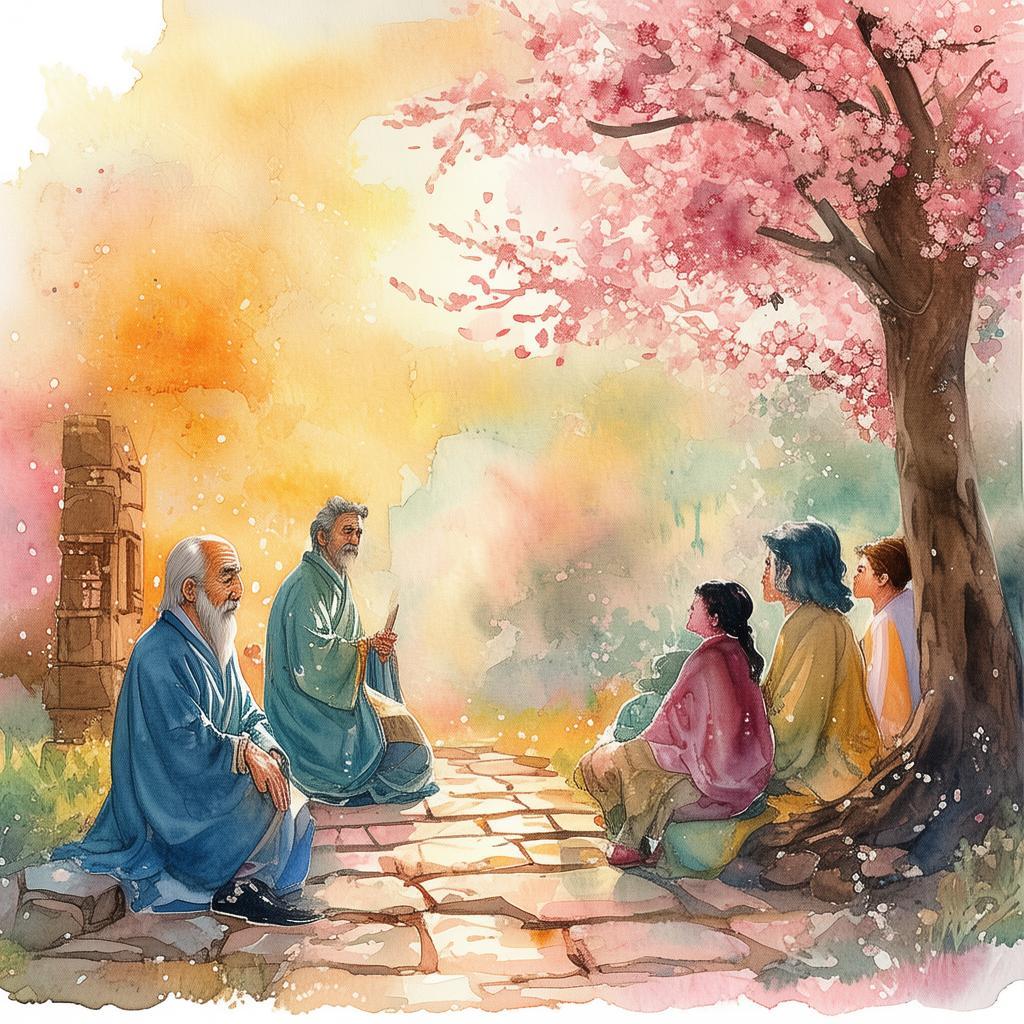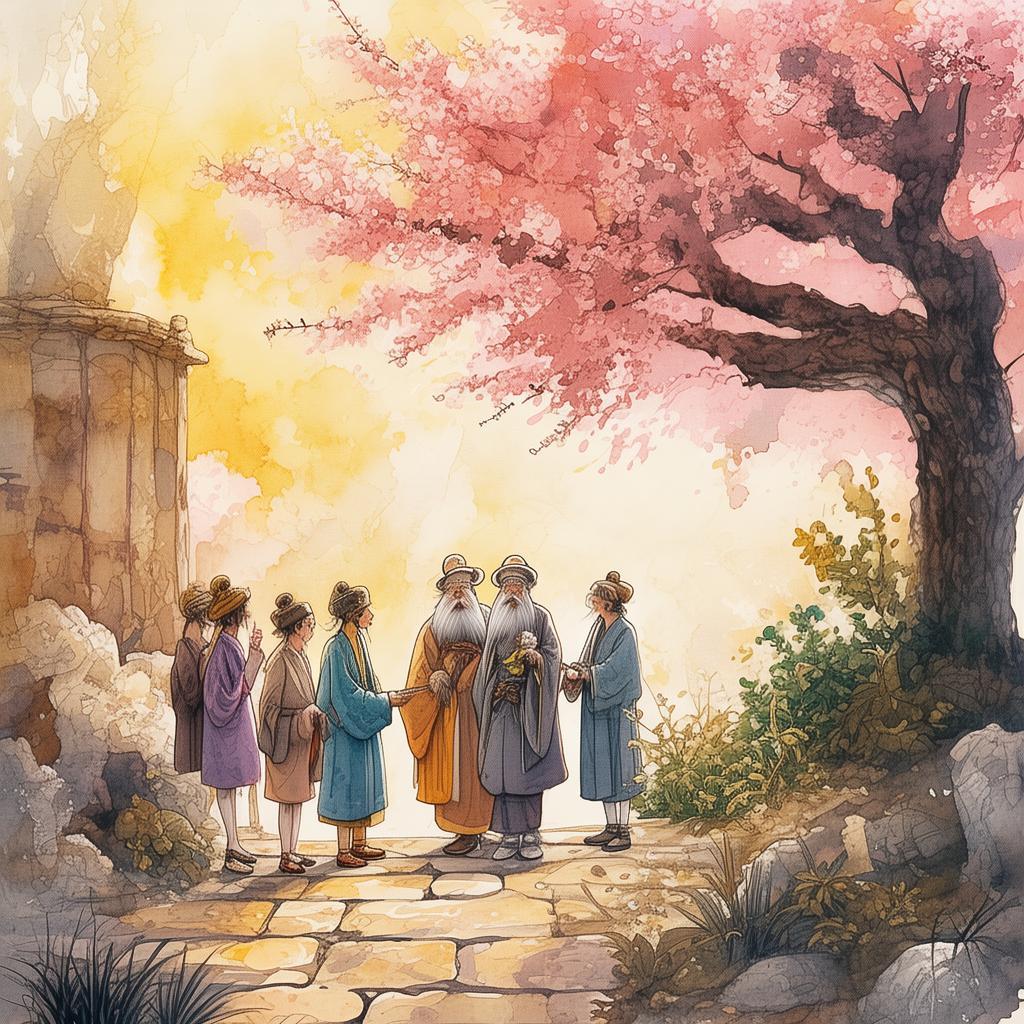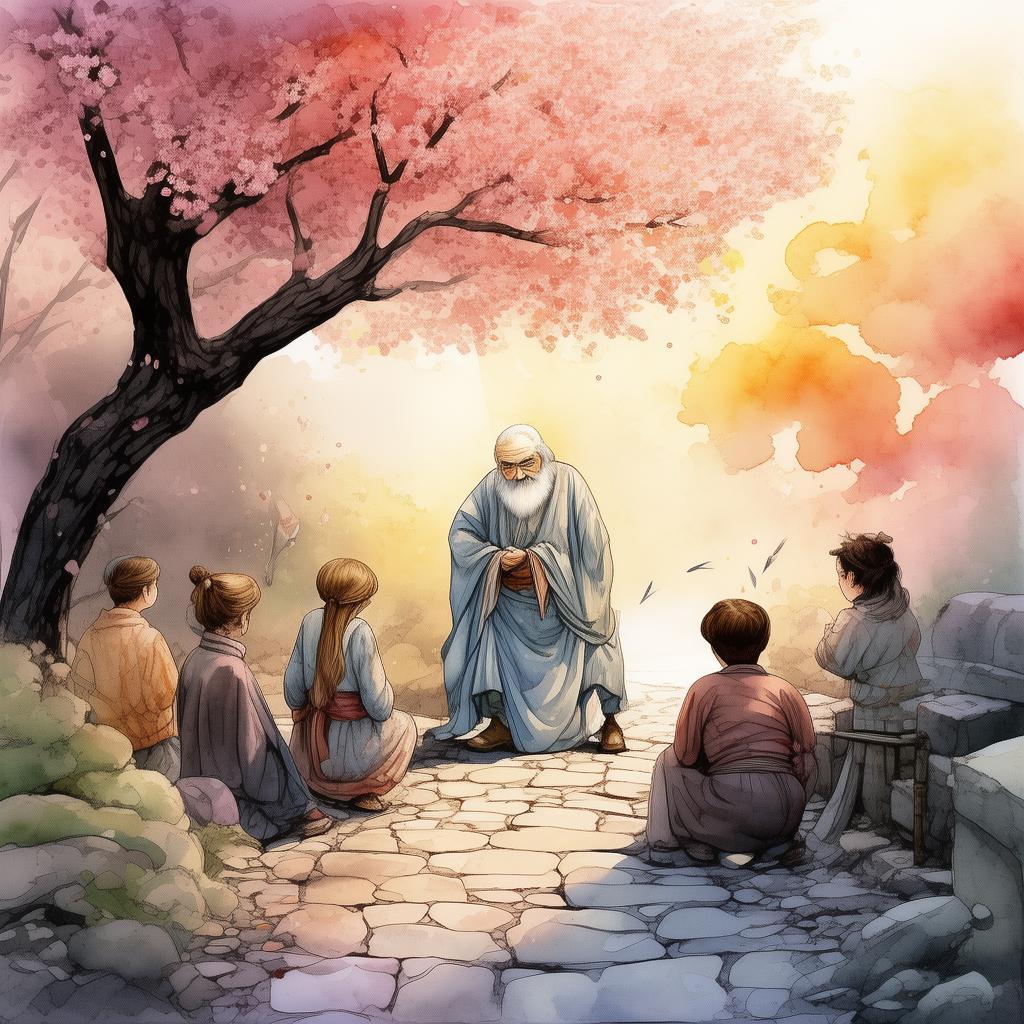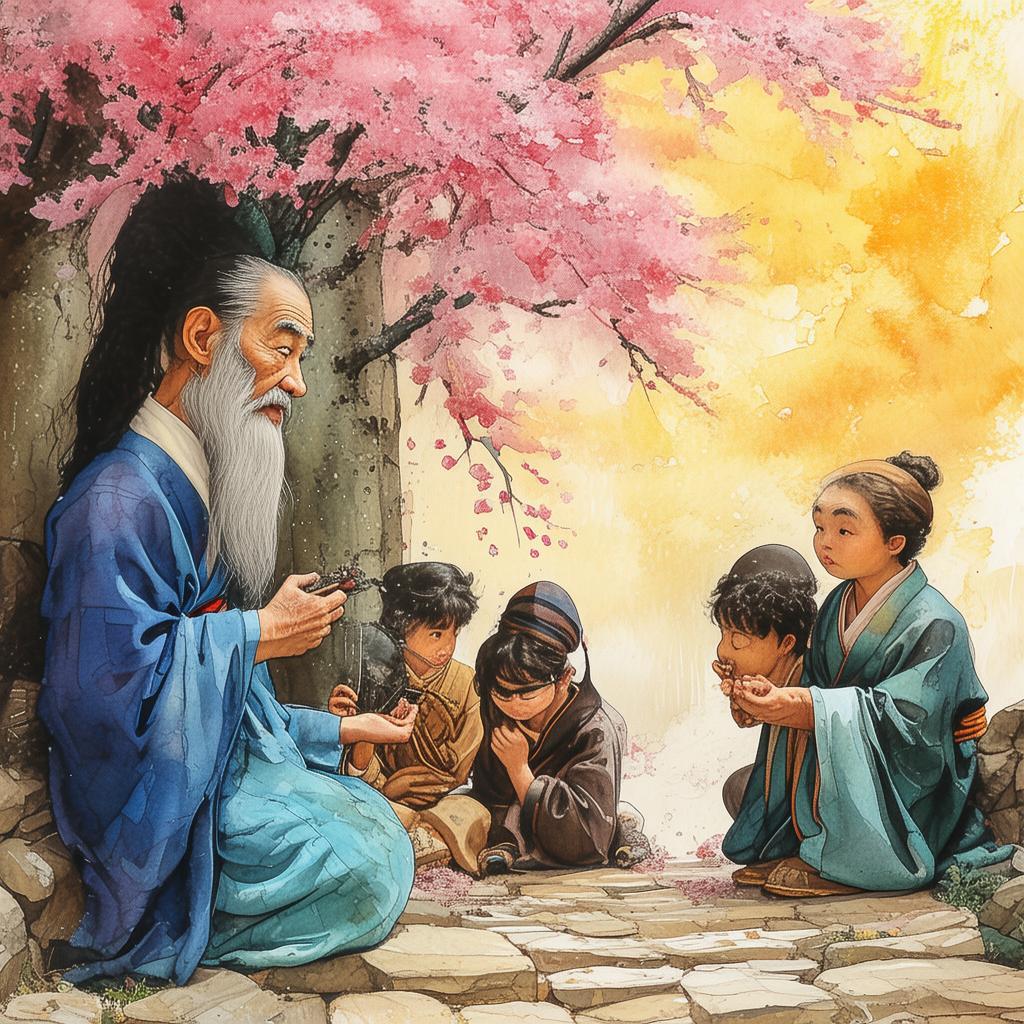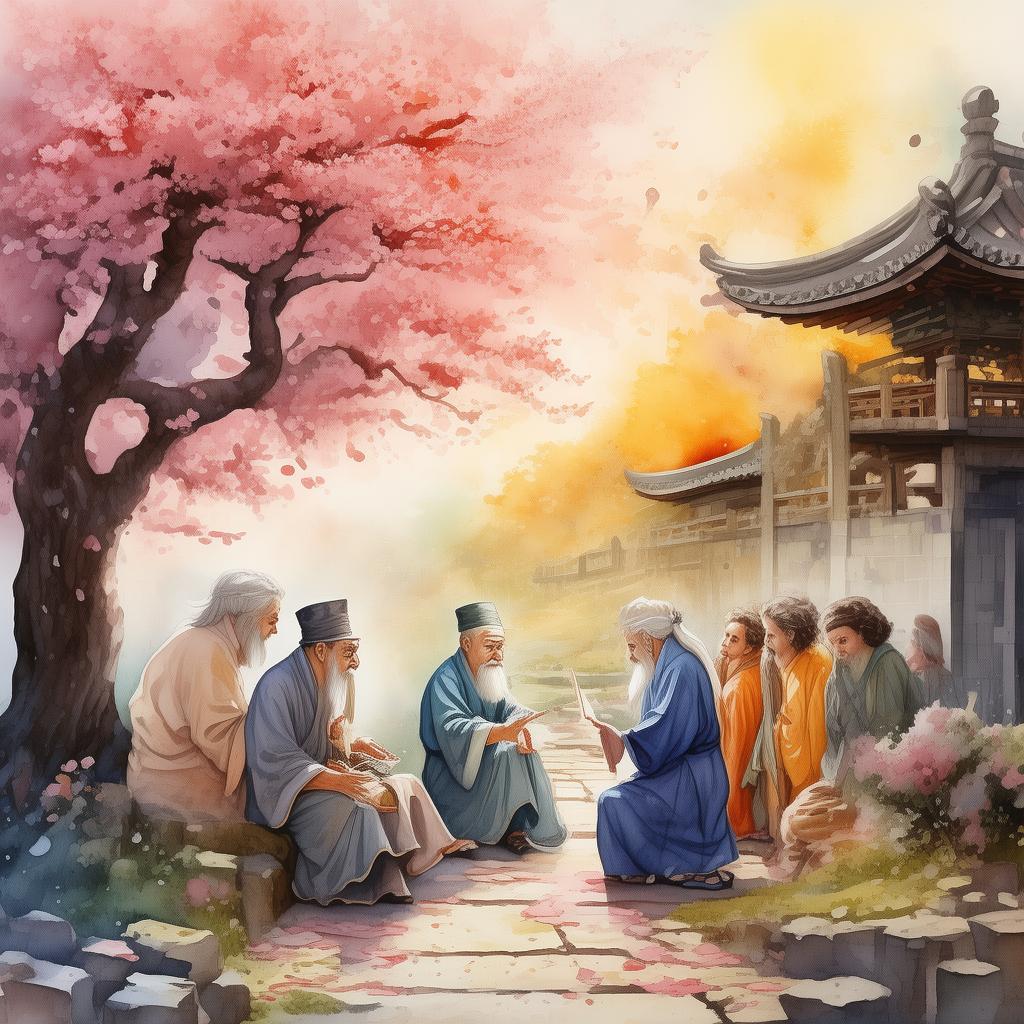The Mind's Joke: The Paradox of the Cleverest Con Man
In the bustling city of Chang'an, there lived a man known as Li Qing. Li Qing was a master of deceit, a con man with a reputation that preceded him. He was said to have outsmarted the most cunning of officials and the most discerning of merchants. His name was synonymous with the most intricate of scams, and yet, despite his cunning, there was a peculiar twist to his story: he was also widely regarded as a man of great wisdom.
One day, a wealthy merchant named Zhang came to Chang'an. Zhang was not just any merchant; he was the richest man in the region, and his wealth was said to be beyond measure. Zhang had heard tales of Li Qing and sought him out with the intention of testing his own wits against the con man's.
Li Qing, upon hearing of Zhang's arrival, was intrigued. He knew that Zhang was not just a wealthy man but also a man of considerable intellect. Li Qing decided that this would be the perfect opportunity to test his own limits and perhaps learn something new about the nature of wisdom.
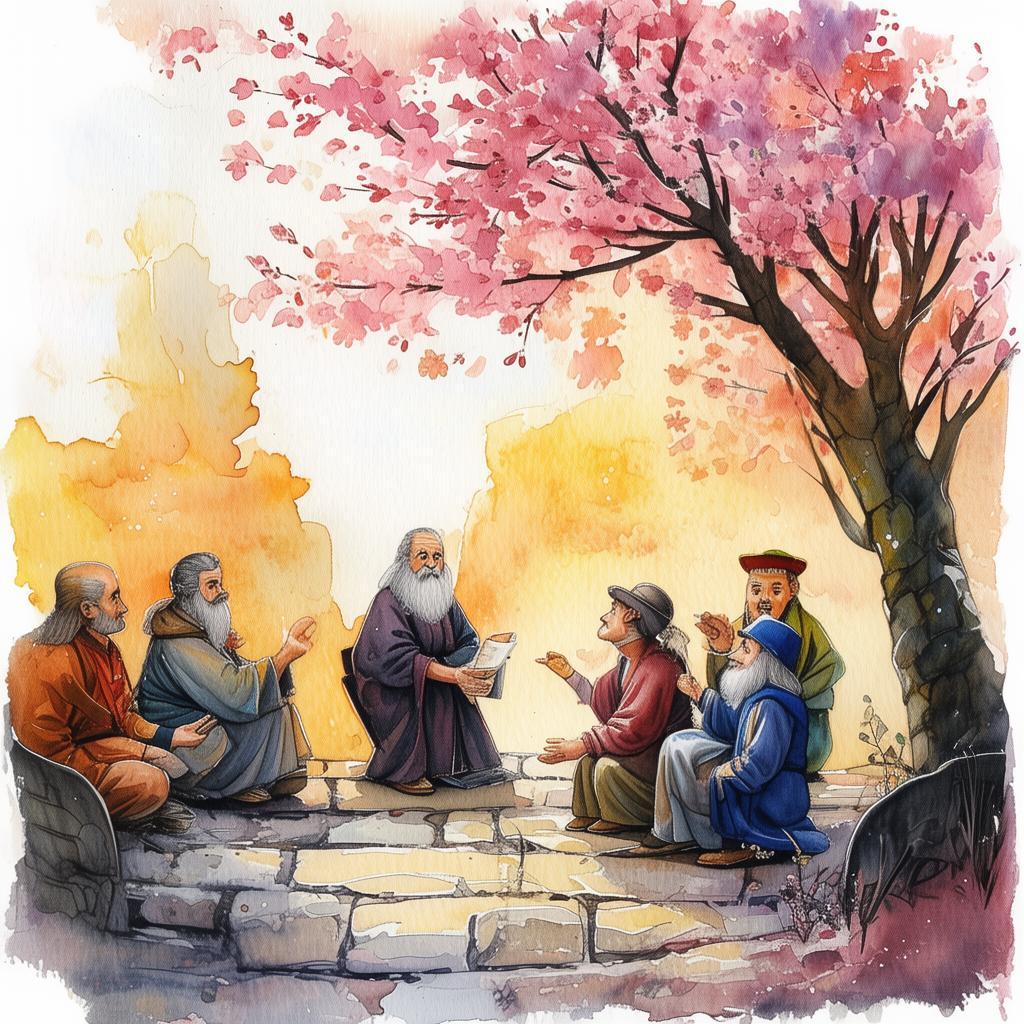
The two men met in a secluded garden, where they were served tea by a servant who was as silent as a shadow. Li Qing began the conversation with a simple question, "Sir Zhang, have you ever wondered what it is that separates the wise from the witty?"
Zhang, a man of few words, nodded. "I have often pondered that, Li Qing. But what do you think it is?"
Li Qing smiled, a knowing smile that belied the simplicity of his words. "The wise man uses his wit to understand the world, while the witty man uses his wit to manipulate it."
Zhang leaned forward, intrigued. "And which are you, Li Qing?"
Li Qing paused, considering the question. "I am both, and neither. I use my wit to understand, but I also use it to manipulate. The difference lies in the intention behind the use of wit."
The conversation continued, and soon, Li Qing proposed a challenge. "I will tell you a joke, and if you can guess its meaning, you have outsmarted me. But if you cannot, you will have to pay me a price."
Zhang agreed, and Li Qing began. "There was once a man who was so clever that he could see through any deceit. One day, he met a con man who was so cunning that he could fool anyone. The con man challenged the wise man to outsmart him. They agreed to a contest, and the con man won. The wise man, however, was not disappointed. He realized that the con man's cunning was a form of wisdom, and the wise man's inability to outsmart him was a testament to his own limitations."
Zhang pondered the joke, his brow furrowed. "I see," he said finally. "The joke is about the paradox of wisdom and wit. The con man's cunning is a form of wisdom, and the wise man's inability to outsmart him is a reflection of his own wisdom."
Li Qing nodded, impressed. "You have outsmarted me, Sir Zhang. But you have also proven that you are a man of great wisdom. You have understood the joke, and in doing so, you have acknowledged the paradox of the wise and the witty."
Zhang smiled, a rare expression on his face. "Then I shall accept your challenge, Li Qing. But there is no need for a price. You have taught me something valuable."
As they parted ways, Li Qing reflected on the encounter. He had set out to test his own limits, but in the end, it was Zhang who had outsmarted him. Li Qing realized that true wisdom was not about outsmarting others, but about understanding them.
From that day on, Li Qing's approach to conning people changed. He began to use his wit to understand the people he dealt with, rather than to manipulate them. His reputation as a con man waned, but his reputation as a wise man grew.
The story of Li Qing and Zhang spread far and wide, becoming a parable of the paradox of the wise and the witty. It was said that those who listened to the tale were never the same, for they understood that wisdom was not about cunning, but about seeing the truth in every situation.
In the end, Li Qing's greatest con was not the scams he had pulled, but the lesson he had taught the world about the nature of wisdom. And in that lesson, he had found his own liberation from the confines of deceit.
✨ Original Statement ✨
All articles published on this website (including but not limited to text, images, videos, and other content) are original or authorized for reposting and are protected by relevant laws. Without the explicit written permission of this website, no individual or organization may copy, modify, repost, or use the content for commercial purposes.
If you need to quote or cooperate, please contact this site for authorization. We reserve the right to pursue legal responsibility for any unauthorized use.
Hereby declared.
